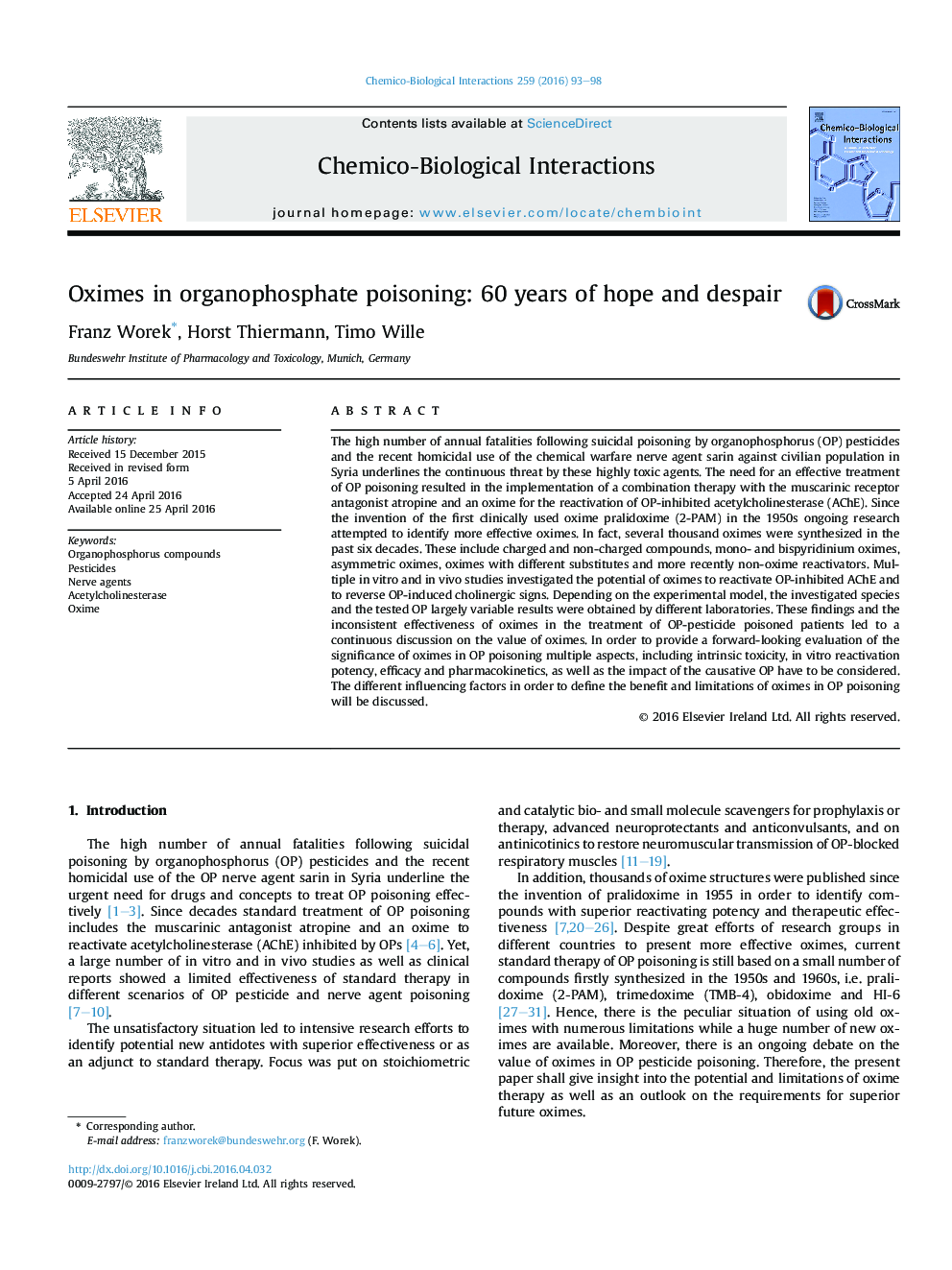| کد مقاله | کد نشریه | سال انتشار | مقاله انگلیسی | نسخه تمام متن |
|---|---|---|---|---|
| 5559508 | 1403288 | 2016 | 6 صفحه PDF | دانلود رایگان |
- Research on effective oximes against organophosphate poisoning continues since more than six decades.
- The value of oximes in organophosphate poisoning is still under debate.
- A proper evaluation of the potential and limitations of oximes is urgently needed.
- Factors for limiting the effectiveness of oximes are discussed.
The high number of annual fatalities following suicidal poisoning by organophosphorus (OP) pesticides and the recent homicidal use of the chemical warfare nerve agent sarin against civilian population in Syria underlines the continuous threat by these highly toxic agents. The need for an effective treatment of OP poisoning resulted in the implementation of a combination therapy with the muscarinic receptor antagonist atropine and an oxime for the reactivation of OP-inhibited acetylcholinesterase (AChE). Since the invention of the first clinically used oxime pralidoxime (2-PAM) in the 1950s ongoing research attempted to identify more effective oximes. In fact, several thousand oximes were synthesized in the past six decades. These include charged and non-charged compounds, mono- and bispyridinium oximes, asymmetric oximes, oximes with different substitutes and more recently non-oxime reactivators. Multiple in vitro and in vivo studies investigated the potential of oximes to reactivate OP-inhibited AChE and to reverse OP-induced cholinergic signs. Depending on the experimental model, the investigated species and the tested OP largely variable results were obtained by different laboratories. These findings and the inconsistent effectiveness of oximes in the treatment of OP-pesticide poisoned patients led to a continuous discussion on the value of oximes. In order to provide a forward-looking evaluation of the significance of oximes in OP poisoning multiple aspects, including intrinsic toxicity, in vitro reactivation potency, efficacy and pharmacokinetics, as well as the impact of the causative OP have to be considered. The different influencing factors in order to define the benefit and limitations of oximes in OP poisoning will be discussed.
Journal: Chemico-Biological Interactions - Volume 259, Part B, 25 November 2016, Pages 93-98
